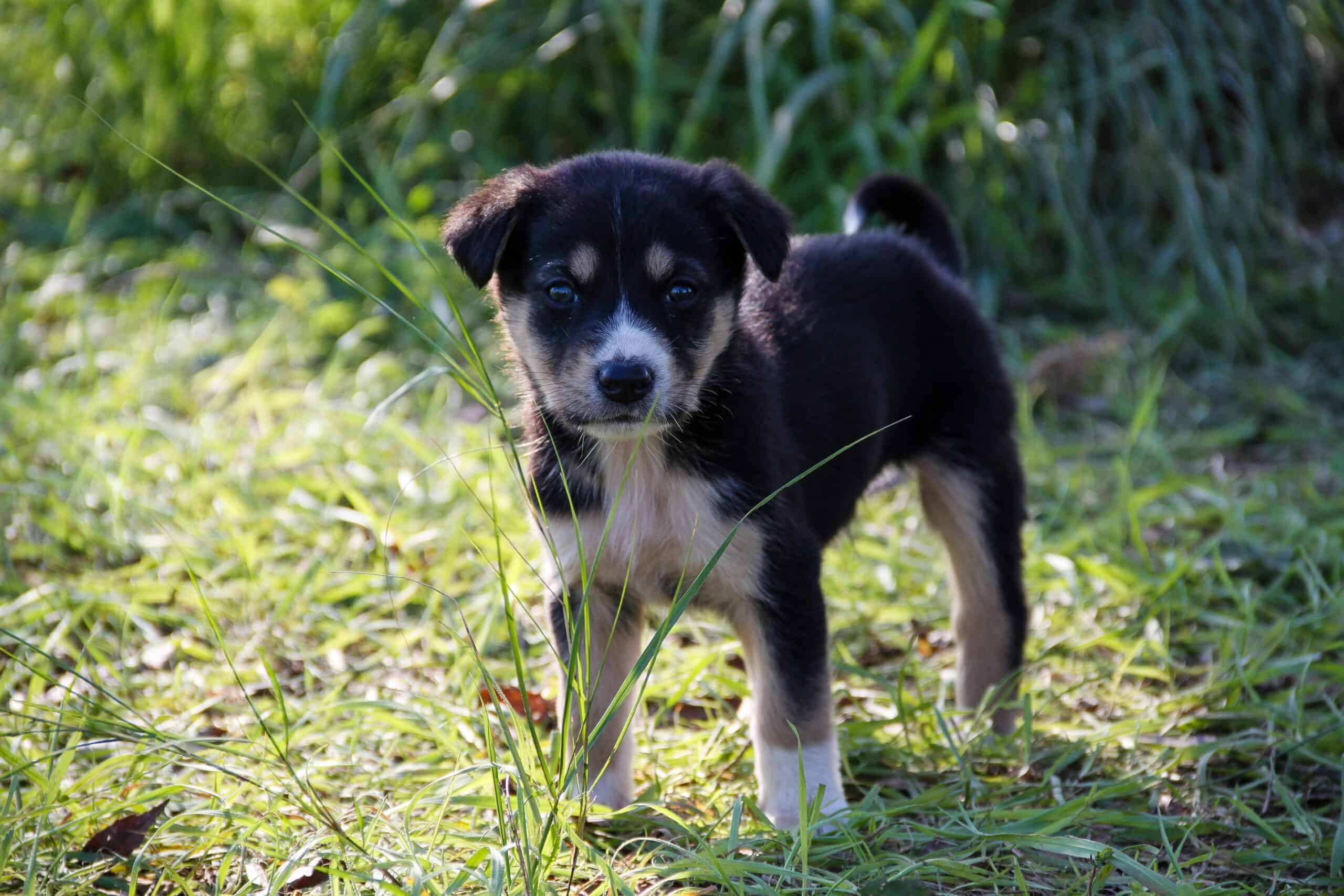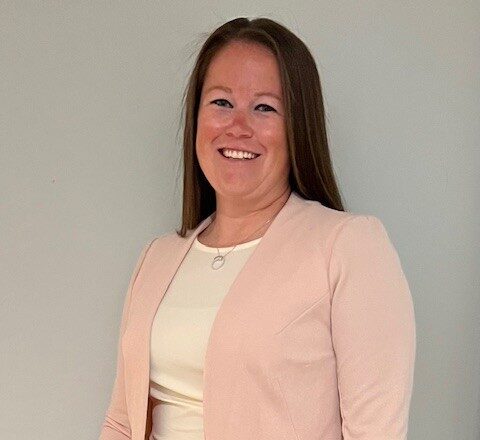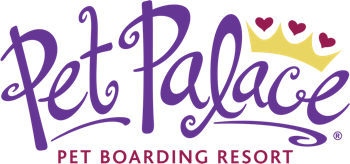Puppy Potty Training 101: Tips for Getting Your Pup to Go Outside
Posted by Lora Shaw on July 8, 2025

Puppy Potty Training: Key Takeaways
- Consistency is critical – Regular schedules, designated spots, and repeated cues help puppies understand where and when to go
- Frequent supervision prevents accidents – Puppies need frequent outdoor opportunities, especially after eating, drinking, or waking up, to reinforce proper behavior
- Positive reinforcement shapes behavior – Immediate rewards like praise or treats strengthen the connection between going outside and good outcomes
- Patience and observation are essential – Every puppy learns at a different pace, so remember that recognizing patterns and responding calmly can encourage long-term success
- Establish a foundation for future training – Effective potty training early on sets the stage for obedience and other training in the future
Bringing home a new puppy is an exciting adventure, but one of the very first and most important challenges you’ll face is potty training. Potty training your puppy not only helps keep your home clean, but also lays the foundation for good habits that will last a lifetime.
While the process can feel overwhelming at first, with patience, consistency, and positive reinforcement, you’ll find that even the youngest pups can learn what’s expected of them. Check out our post to discover all the best practices for potty training your puppy!
Quick Advice for Puppy Potty Training
Consistency, supervision, and positive reinforcement are some of the best resources for success when potty training your puppy. It’s important to remember that every pup learns at their own pace, so don’t worry too much if your puppy doesn’t pick up the routine immediately. Staying patient and celebrating the small wins will help both you and your pup, as they will learn with time. Additionally, make sure to gather the necessary supplies to support the training process.
Puppy Potty Training Essentials Checklist
- Leash and collar/harness
- Treats on hand, for rewarding good behavior
- A carpet/floor cleaner that will neutralize odors
- Crate/playpen
- Baby gates
- Plenty of patience
Our Guide to Puppy Potty Training
Potty training your puppy is an important part of helping your pet adjust to their new home and develop good habits. While it can be a challenging process at times, following a few simple guidelines can make it much easier for both you and your pup.
- Establish a routine – Puppies love consistency, both with feeding and potty training. When you feed your puppy at the same time each day, you can try to regulate when they will need to go to the bathroom.
- Take your puppy outside, a lot – Be sure to let your puppy out frequently. Once every two hours is ideal, but be sure to always let them out immediately after they drink a lot of water, eat, or nap to reduce the risk of accidents.
- Pick a bathroom spot outside – Have you denoted a bathroom spot yet? Whenever you take your pup out, put them on a leash and encourage them to go to a specific spot. This consistency can help them learn that this area is their bathroom spot, encouraging them to do their business once they arrive. Their sense of smell will also play into this, as it will help them recognize the area.
- Use cues or phrases – When your pup starts to go potty, use a phrase that will help them connect the words with the action. Eventually, the cue will allow them to make the connection when it’s time to go.
- Reward your puppy – Once your puppy goes to the bathroom outside, it’s essential to reward them immediately. This can be in the form of praise, treats, or both. Just make sure that the timing is right, since rewarding them too late can cause confusion!
Extra Tips for Puppy Potty Training Success
- Supervise and confine – When your pup is indoors, it’s important to closely supervise them and look for signs that they might need to go potty, which could include sniffing, whining, or heading toward the door.
- Try crate training – Keep your pup in a properly sized crate or playpen when you can’t supervise them. Crate training is effective because it gives your pet an incentive to keep their sleeping area clean, which is why this is a popular method for potty training your puppy.
- Handle accidents calmly – If your puppy has an accident inside, don’t fret about it. Just clean it up thoroughly with an appropriate cleaner that will remove the odors. There is no need for punishment when potty, as this can cause fear and confusion for your pet.
- Track progress – Sometimes, having a log of potty times and accidents can help you identify patterns in your pup’s life. Adjust your schedule as needed to accommodate for these changes. Keep these records in a place that is easy to find – like an app on your phone or a dry erase board that is right by your door.
- Remove water sources – To reduce overnight accidents, plan on taking their water dish away around 2–3 hours before bedtime. This will also make the overall puppy potty training process a lot easier!
- 7-hour rule for bedtime – Most puppies can sleep seven hours without a break, but just remember that if the puppy wakes you, you should take them out quietly. Then, put them back to bed without playing or giving them water until morning.
- Use baby gates – Baby gates are a great way to confine your puppy to easy-to-clean areas, like the kitchen or other non-carpeted spaces, during the early stages of training.
Resources to Explore
- Check out this Reddit thread that contains some of the best puppy potty training tips and advice
- Watch this YouTube video if you’re frustrated that your potty training efforts aren’t working
- View this guide from the Animal Humane Society for tips and tricks in different scenarios
- Read our post with plenty of wonderful resources for new dog and puppy owners alike
FAQs About Puppy Potty Training
Should I train my dog inside or outside?
Outdoor potty training is preferred by most dog owners, and for good reason. It teaches pups to use the bathroom where you want, minimizing indoor accidents and messes. It also helps them develop a routine and associate going to the bathroom with being outside. While it’s not convenient during inclement weather or for those with limited access to outdoor spaces, it’s best to power through.
How long does the puppy potty training process take?
Puppy potty training can take anywhere from a few weeks to several months. On average, most puppies start to catch on when they’re 4–6 months old. However, it’s important to consider the different factors that impact this timeline, such as age and breed. On top of these aspects, consistency and patience are key!
How do I know that my dog has to go to the bathroom?
There are a few actions your dog may take if they have to use the restroom, such as:
- Sniffing the ground or circling in one spot
- Whining, barking, or suddenly becoming restless
- Walking toward the door or pawing at it
- Pacing or acting distracted
- Stopping play abruptly
If you notice any of the above, take your dog outside so they can try to go potty. Responding to these signals with consistency helps create good bathroom habits.
Need More Help? Bring Your Furry Friend to Pet Palace!
Is your puppy potty trained, but in need of social skills or other training? Pet Palace has an experienced staff that is ready to help. We provide a range of dog training options in Pittsburgh, Columbus, Cary, and West Chester, which include:
- Polite Puppy Program – This 10-day course is designed for puppies eight months old and younger. It focuses on teaching fundamental obedience skills while helping your puppy socialize in a day care environment.
- 10-Day Basic Adult Program – Tailored for dogs eight months and older, this 10-day course includes daily one-on-one training sessions to ensure effective learning and lasting results.
- 20-Day Advanced Adult Program – Spanning four weeks, this advanced course is intended for dogs over eight months old. It emphasizes consistent, results-oriented training and offers greater customization to meet your dog’s specific needs.
Contact Us Today with Questions!
By following these tips and sticking to your routine, you’ll be setting your puppy up for a lifetime of good habits, and a happier, cleaner home for everyone. And if you ever need extra support, be sure to reach out to the Pet Palace team – we are here to help!

Categories: All Posts, Dog Training, Dogs, Tips for Your Pets
Archives
Recent Articles
Categories
Monthly Archive
- October 2025
- September 2025
- August 2025
- July 2025
- June 2025
- May 2025
- April 2025
- March 2025
- February 2025
- January 2025
- December 2024
- November 2024
- October 2024
- September 2024
- August 2024
- July 2024
- June 2024
- May 2024
- April 2024
- March 2024
- February 2024
- January 2024
- December 2023
- November 2023
- October 2023
- August 2023
- July 2023
- June 2023
- May 2023
- April 2023
- March 2023
- February 2023
- January 2023
- December 2022
- November 2022
- October 2022
- August 2022
- July 2022
- June 2022
- April 2022
- March 2022
- February 2022
- November 2021
- October 2021
- November 2020
- September 2020
- July 2020
- March 2020
- January 2020
- November 2019
- September 2019
- July 2019
- March 2019
- January 2019
- December 2018
- November 2018
- October 2018
- August 2018
- July 2018
- June 2018
- May 2018
- April 2018
- March 2018
- February 2018
- January 2018
- December 2017
- November 2017
- October 2017
- September 2017
- August 2017
- July 2017
- June 2017
- May 2017
- April 2017
- March 2017
- February 2017
- January 2017
- December 2016
- November 2016
- September 2016
- August 2016
- July 2016
- June 2016
- May 2016
- April 2016
- March 2016
- February 2016
- December 2015
- November 2015
- October 2015
- September 2015
- August 2015
- July 2015
- May 2015
- March 2015
- February 2015
- January 2015
- December 2014
- November 2014
- September 2014
- August 2014
- July 2014
- June 2014
- May 2014
- March 2014
- February 2014
- January 2014
- December 2013
- November 2013
- October 2013
- September 2013
- August 2013
- June 2013
- May 2013
- March 2013
